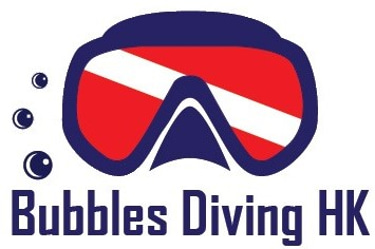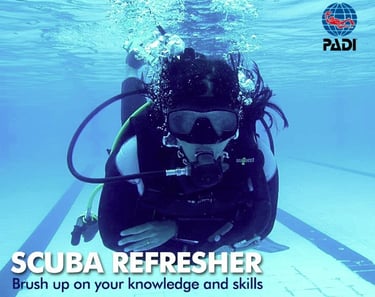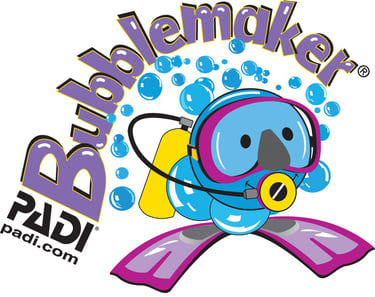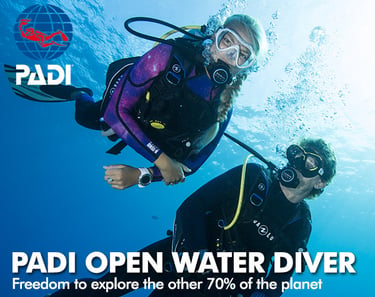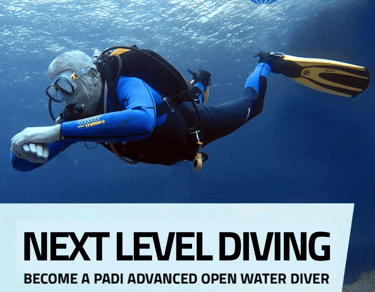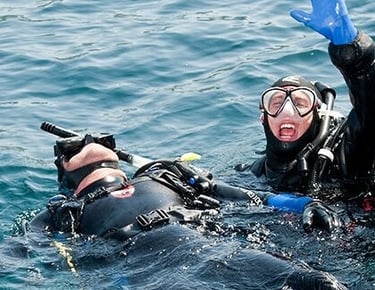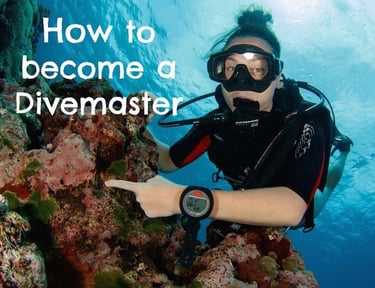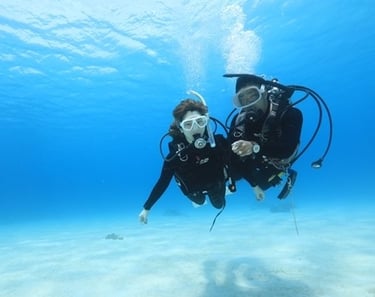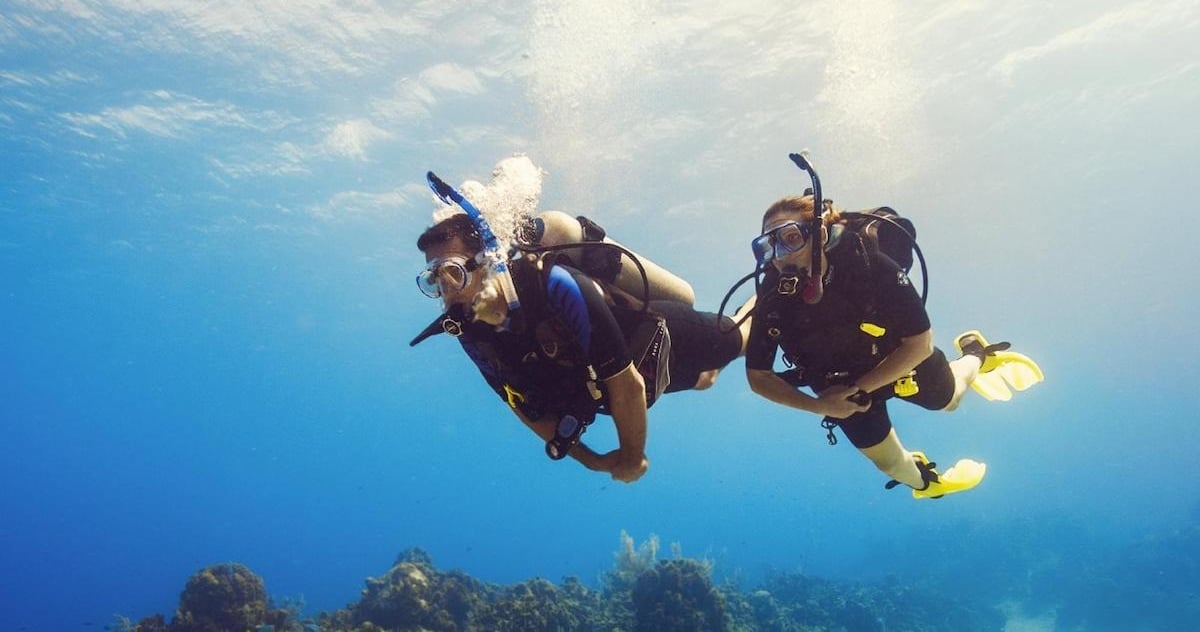

We are a Community of Ocean Lovers. We are PADI
What is Scuba Diving?
Humans were not given the ability to fly nor to breathe underwater. Still, they were given the mind which is powerful enough to find ways around the impossible, and Scuba Diving is one of the best innovations of humankind. It is a type of underwater activity whereby a person/diver immerses underwater using specialized breathing equipment, that is completely independent of a surface air supply.
The name “scuba” is short for “Self-Contained Underwater Breathing Apparatus.” Scuba divers carry their source of breathing gas, ”Tank/Cylinder”, usually filled with compressed air, offering them greater independence and free movement than surface-supplied air divers, and of course, more underwater time than breath-hold divers or Free-Divers.
In recreational Scuba Diving, although the use of compressed air is common, a gas blend with a higher oxygen content, known as Enriched Air or Nitrox. Diving with Enriched Air/Nitrox has become popular due to the less nitrogen intake, which reduces the likelihood of the side-effects of breathing Nitrogen at a depth such as Tiredness Nitrogen Narcosis.
How deep can a recreational Scuba Diver go?
How deep can a recreational Scuba Diver go? The safe depth limit for recreational divers is between 30 and 40 meters (100 to 133 feet). Going deeper requires further and different types of training and equipment.




Is it safe to Scuba Dive?
Scuba diving is enjoyed by thousands of people around the world every day and it’s considered a low-risk activity compared to many other outdoor and sporting activities. Even such widespread activities as swimming, jogging, and all-terrain vehicle riding have higher reported fatality rates than diving. So, read on as we explore the stats on scuba diving risks, alleviate some common fears, and share a few tips on how to keep scuba diving safe.
Is scuba diving dangerous? As with any adventure sport, some risk is involved. Humans are not built to breathe underwater, which means that a diver is completely dependent upon the proper equipment, skills, and emergency training to ensure a safe resurface for every dive. This truth, while it may sound frightening, should not discourage prospective divers. However, it should encourage divers to approach the sport with an appropriate amount of respect. Scuba diving is not dangerous as long as a diver seeks thorough training, follows safe diving guidelines, uses proper gear, and dives within his experience level.




How can I learn to Scuba Dive?
Learning to scuba dive is one of the most exciting and rewarding journeys you can take — but there are a few things you should know about beginning to scuba dive. Here, you’ll find all of the information you need to learn to scuba dive, from the basics on what it takes to become a certified scuba diver, to the best scuba gear for beginners and frequently asked questions about scuba diving.
If you just want to try scuba diving, most PADI® Dive Shops offer a half-day experience called Discover Scuba Diving in a pool or pool-like environment, with an optional open water dive. It’s a quick and easy way to find out if you like scuba diving, but it’s not a certification course.
A scuba diving certification, also known as an Open Water Diver certification, allows you to dive anywhere in the world. Similar to driving a car, scuba diving requires specific knowledge, skills and training. A PADI Open Water Diver certification allows you to seek adventure anywhere where there’s water.





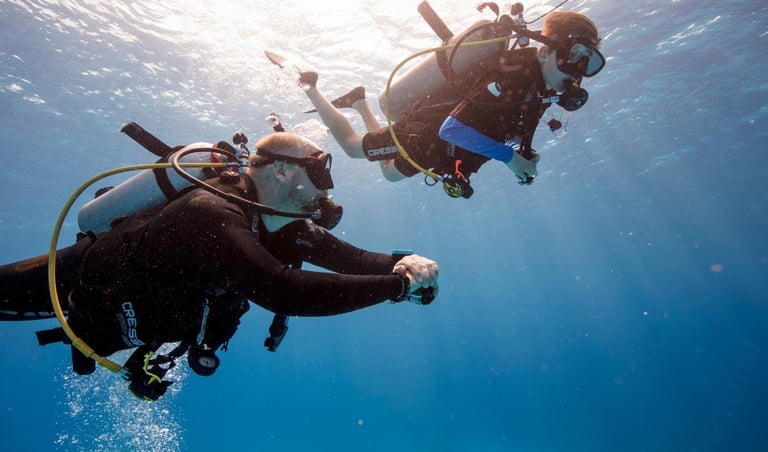

Bubbles Diving HK Scuba Courses
Click on the Image Course below to Know More
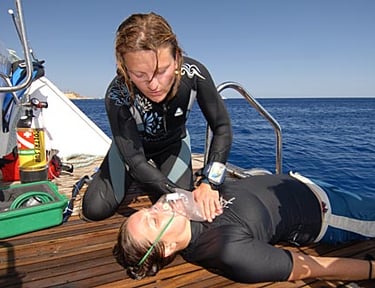



Local Boats & Pools
PADI Open Water & Confined Water Training & Fun Diving


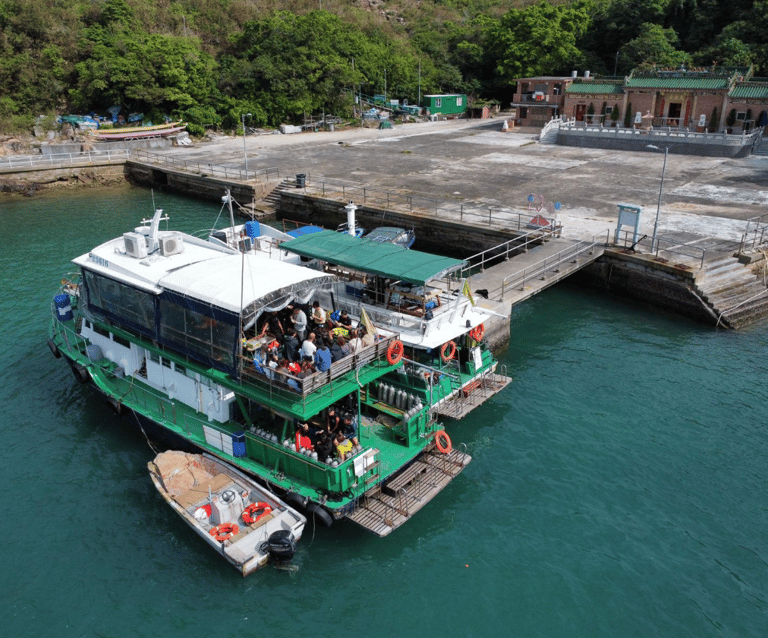

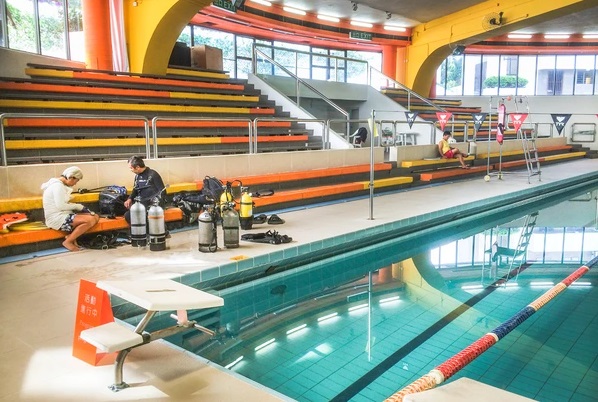

Contacts
Whatsapp: +852 6200 6701 (Primary) Whatsapp: +852 6904 1892
bubblesdiving.hk@hotmail.com
Location: Kowloon, Hong Kong
Bubbles Diving HK©2025
